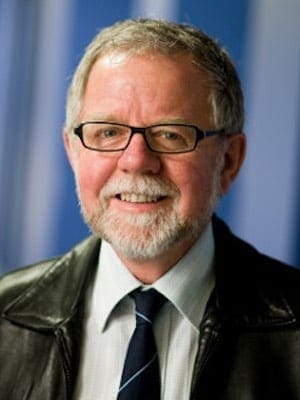It is interesting to notice how commonly political leaders now say – in regard to the victims of something like a natural disaster or the latest mass shooting in the U.S. – that “our prayers are with them.”
I find myself wondering what this means. I do not decry the compassion and sympathy indicated by that statement, but in increasingly secular societies one wonders what exactly people understand by that statement.
There is an important challenge here. Following the shooting in Las Vegas, Australian theologian Val Webb made a very insightful comment on the way we can use the idea of praying as a substitute for serious action to address injustice or other social needs.
Drawing upon her excellent research into and book about Florence Nightingale, Webb wrote this on Facebook: “The great reformer Florence Nightingale had strong words about praying about things when action is needed. ‘It is a religious act to clean out a gutter and to prevent cholera,’ she said, ‘It is not a religious act to pray (in the sense of simply asking to take cholera away).’ As for those who say God will take care of everything if it is God’s will, Florence said: ‘God will do no such thing … [God] does not treat [us] like children; humankind is to create humankind. We are to learn, first, what is heaven, and secondly, how to make it [here]. We are to ascertain what is right and then how to perform it.'”
This is spot on. It does not mean there is no place for prayer, but rather that genuine prayer cannot be a substitute for responsible action. Reflective practice requires both.
This I think is very much in line with the teaching of Jesus. In Matthew 6:5-7, for example, Jesus challenges his followers to think about praying.
What really does it mean to stand before God? The reality is that so much of what was happening then, and I think also is possible now, is pretense, or if you like, performance.
Religion can be about performance – often a performance that helps us avoid the truth about ourselves, and somehow we think that this can also deceive God as well. As if!
Genuine prayer has to be about honesty, truth, integrity: Honesty with ourselves and with God.
Worship and prayer imply an approach to God, or, if you like, an acknowledgment that we are in the presence of God. It’s a kind of orientation: working out where we are and also what we are going to do.
I have found it very helpful to reflect upon some of the prayers left to us by “saints” of earlier centuries.
Our situations are in many ways very different, and yet there is a common humanity, common needs and also similar potential for compassionate response, that expresses itself in prayers – and calls forth similar and appropriate action.
Anselm of Canterbury (1033-1109) was a Benedictine monk, Christian philosopher and scholar recognized for many intellectual accomplishments, including his application of reason in exploring the mysteries of faith and for his definition of theology as “faith seeking understanding.”
He also worked with the idea that theology, thinking about God, must also be a form of prayer. Seeking God is really about trying to learn how to know and relate to God and to ourselves with God in thought and deed.
Here is a translation (from Latin) of a wonderfully compassionate prayer he wrote:
“We bring before you, O Lord, the troubles and perils of people and nations, the sighing of prisoners and captives, the sorrows of the bereaved, the necessities of strangers, the helplessness of the weak, the despondency of the weary, the failing powers of the aged. O Lord, draw near to each, for the sake of Christ our Lord, Amen.”
It simply recognizes so much of our life as humans, and a desire that we might all find some hope, some rest and relief, and I think the idea is not that God will “fix” all these needs and concerns, but rather that together we will live with and through them.
I like the fact that here there is no pretense about life; things are tough for many people, and Anselm does not pretend otherwise. He also implies that this is of concern to God, as it clearly is to him.
His prayer, offered as a collective or communal prayer, thus calls for engagement, concern and action, wherever possible.
Frank Rees is a Baptist pastor in Melbourne, Australia, and an associate professor in the University of Divinity. A version of this article first appeared on his blog, To Be Frank, and is used with permission. You can follow him on Twitter @frankrees.
A Baptist pastor in Melbourne, Australia, and an associate professor in the University of Divinity.

